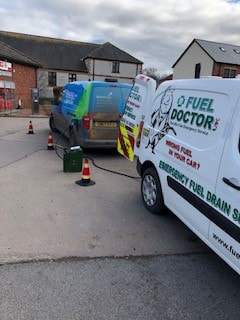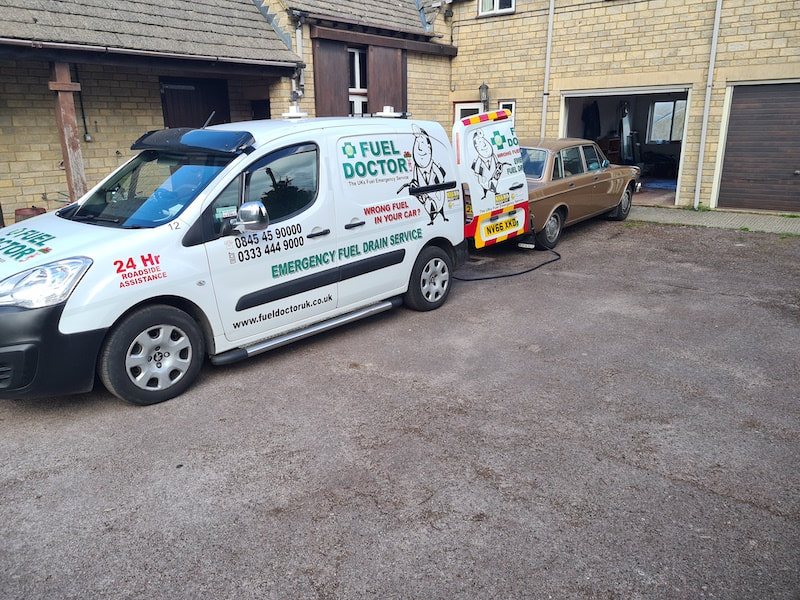AdBlue is a high-purity urea solution used in modern diesel engines equipped with Selective Catalytic Reduction (SCR) technology to reduce nitrogen oxide (NOx) emissions. Its introduction has been a significant step towards meeting stringent emission regulations. However, accidental misfuelling—putting AdBlue in a diesel tank—can cause severe engine damage and operational issues. Understanding the consequences of this mistake and the steps to rectify it is crucial for vehicle owners.
The Role of AdBlue in Diesel Engines
Before delving into the ramifications of misfuelling, it’s essential to understand the role of AdBlue in diesel engines. AdBlue is injected into the exhaust stream of diesel vehicles. In the SCR system, it reacts with the NOx gases produced during combustion, converting them into harmless nitrogen and water vapor. This process significantly reduces the amount of harmful emissions released into the atmosphere.
Misfuelling
AdBlue in the Diesel TankDespite the different fillers and labels, accidents do happen. Misfuelling can occur due to various reasons—confusion at the pump, lack of attention, or unfamiliarity with the vehicle’s requirements. Unlike putting petrol in a diesel tank or vice versa, the consequences of putting AdBlue in a diesel tank are severe due to the chemical nature and purpose of AdBlue.
Immediate Consequences
- Chemical Reaction and Corrosion: AdBlue is composed of deionized water and urea. When it mixes with diesel, it can form crystals and cause corrosion. Urea can break down into ammonia, which can corrode metal parts within the fuel system. This corrosion can damage the fuel injectors, fuel pump, and other critical components.
- Fuel System Contamination: The presence of AdBlue in the diesel tank leads to contamination of the entire fuel system. Diesel and AdBlue do not mix, leading to the formation of a sludgy substance that can clog filters, injectors, and fuel lines. This contamination can cause the engine to run poorly, stall, or fail to start altogether.
- Engine Damage: Running the engine with AdBlue-contaminated diesel can lead to severe damage. The engine may misfire, lose power, or even seize up. The urea crystals and corrosive properties can cause irreversible damage to the fuel injectors, combustion chambers, and other internal components.
Long-Term Consequences
- Expensive Repairs: The immediate result of misfuelling is often costly repairs. Cleaning the fuel system, replacing damaged components, and ensuring no residual contamination can be a labor-intensive and expensive process. In some cases, the damage may be so extensive that it requires a complete overhaul of the fuel system or even engine replacement.
- Voiding Warranties: Many vehicle manufacturers stipulate that misfuelling can void warranties. This means that the owner would be responsible for all repair costs out of pocket, adding a significant financial burden.
- Operational Downtime: For commercial vehicles, the downtime resulting from such an incident can be particularly detrimental. It can lead to loss of productivity, delayed deliveries, and additional logistical costs.
Immediate Steps to Take If you realise that AdBlue has been added to the diesel tank, taking prompt action can mitigate the damage:
- Do Not Start the Engine: If the engine hasn’t been started, do not attempt to start it. Starting the engine will circulate the contaminated fuel, leading to further damage.
- Inform the Garage: Contact a professional garage or roadside assistance immediately. Explain the situation so they can prepare for the necessary procedures.
- Drain the Tank: A professional mechanic will need to drain the diesel tank completely. This process involves removing all the contaminated fuel and cleaning the tank thoroughly to ensure no AdBlue residue remains.
- Flush the Fuel System: The entire fuel system needs to be flushed to remove any traces of AdBlue. This includes the fuel lines, injectors, and filters. In some cases, components may need to be replaced if they have been damaged by the contamination.
Prevention Tips
- Awareness and Education: Ensure that anyone who refuels the vehicle is aware of the differences between diesel and AdBlue and the consequences of misfuelling. Clear labels and reminders can help prevent mistakes.
- Use AdBlue Safeguards: Many vehicles come with safeguards, such as AdBlue filler necks designed to prevent diesel nozzles from fitting. Using these and ensuring the correct filler is used can prevent accidental contamination.
- Regular Maintenance: Regular vehicle maintenance can help identify potential issues early. A well-maintained vehicle is less likely to suffer catastrophic damage from minor mistakes.
Putting AdBlue in a diesel tank is a mistake with serious consequences. The chemical nature of AdBlue means that it can cause significant damage to the engine and fuel system, leading to costly repairs and extended downtime. Immediate action and professional intervention are crucial to mitigate the damage. Awareness and preventive measures can help avoid such costly mistakes in the first place. For vehicle owners, understanding the role of AdBlue and the critical importance of correct fuelling practices is essential to maintaining the health and efficiency of their diesel engines.





















 RSS Feed
RSS Feed